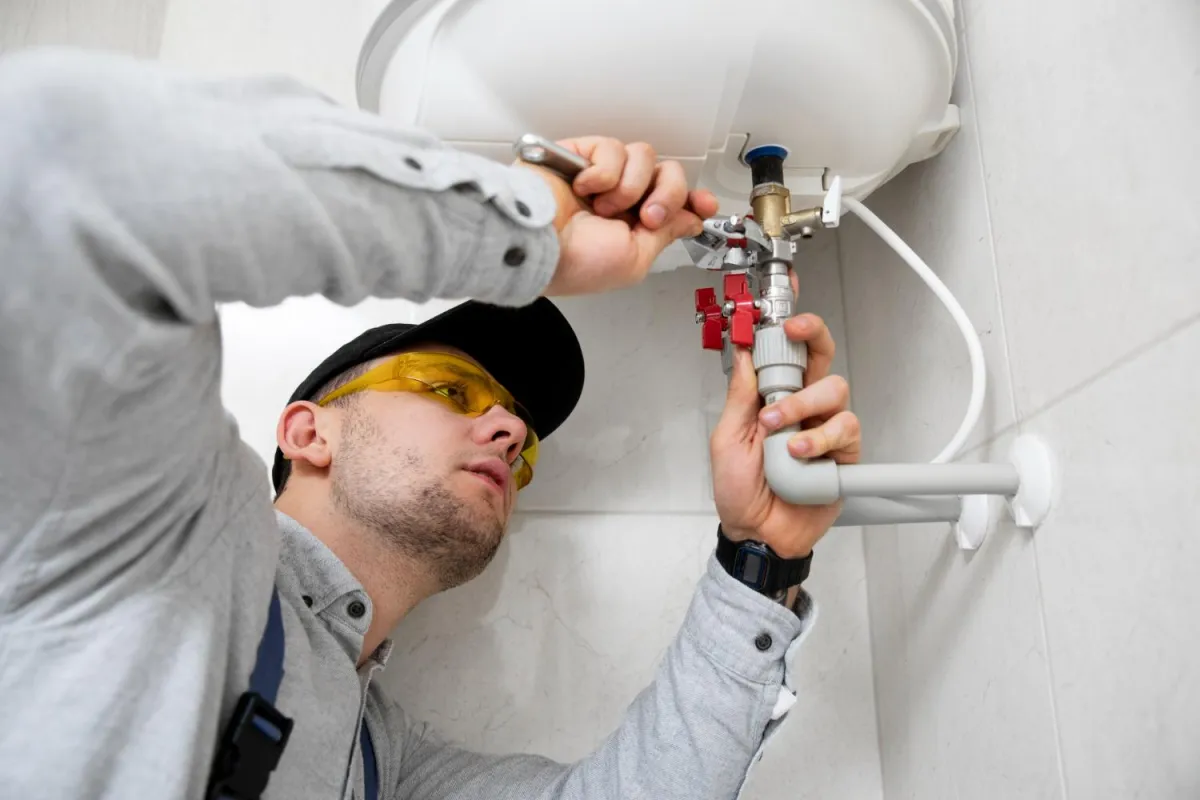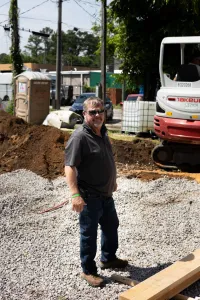Blogs

What That Knocking Sound in Your Water Heater Means
It can be pretty unsettling to hear strange knocking sounds coming from your water heater. One minute things are quiet, and the next, you're wondering if something inside the tank just gave out. If you're hearing this in your home around Birmingham, you're definitely not alone. These sounds usually start out soft and might even go unnoticed for a while. But once they get louder or more regular, they’re hard to ignore.
Sounds like these often mean your water heater is trying to tell you something is wrong. It could be a minor issue, or it might be the start of something that affects how well your system heats water. Waiting too long to figure out what’s going on can lead to more damage and higher repair costs later. If your unit has been acting up, especially during the end-of-summer period when water use might spike again with changing schedules, now’s the time to pay attention. Water heater repair can make all the difference in restoring peace and comfort at home.
Causes of Knocking Sounds in Water Heaters
A knocking sound coming from your water heater doesn't happen for no reason. There are two common causes behind those loud thumps or rumbles: sediment buildup and something called a water hammer. Both can seriously affect how your water heater works and how long it lasts.
Let’s break each one down:
1. Sediment Buildup
Over time, minerals like calcium and magnesium collect at the bottom of your hot water tank. This is normal, especially in places with harder water like parts of Birmingham. When water heats up, small bubbles rise through the sediment, making all kinds of popping and knocking sounds. This buildup can:
Make the heater less efficient since it takes longer to warm the water
Block heating elements from doing their job properly
Cause the tank to overheat in spots, creating strain and noise
2. Water Hammer
Another reason for the banging sound has nothing to do with sediment. A water hammer happens when the flow of water stops or changes direction suddenly, usually when someone turns off a faucet quickly or an appliance like a washing machine shuts off the water fast. That sudden stop sends shockwaves through the pipes and can rattle the heater or surrounding plumbing with a loud thud.
Ignoring these sounds doesn't make them go away. Sediment will keep building up, and water hammer pressure can eventually cause real damage to pipes and connections. That’s why it's key to listen to your water heater’s warning signs and take action before things get worse.
Diagnosing the Problem
So you're hearing knocking noises, but how can you tell what’s really going on with your water heater? Spotting the cause isn’t always easy, but there are a few things you can watch and listen for.
Check for these signs at home:
Rumbling or popping: If the sound is mostly during the heating cycle and seems to come from inside the tank, it's probably sediment
Loud banging when turning faucets off: This might mean water hammer, especially if it happens right when flow is cut off
Hotter than usual water: Sediment makes the tank work harder, which sometimes causes spikes in water temperature
Visible corrosion or leaks near pipe joints: Support brackets or valves may have loosened if the pipe has been shaking due to water hammer
You can try to inspect these things on your own, but it’s easy to miss something or assume the issue is smaller than it really is. If you're unsure, it’s better to get a licensed plumber to take a closer look. A trained eye can quickly spot where the noise is coming from and figure out how to fix it without guessing. Trying to guess your way through a repair might just make things worse.
Noise shouldn’t be a regular part of your water heater's routine. By figuring out what’s behind the sound early, you avoid larger breakdowns and keep everything running smoothly at home.
Solutions and Repairs
Once you’ve figured out whether it’s sediment buildup, water hammer, or something else causing the noise, the next step is fixing it. Most of the time, the knocking sound won’t go away on its own. Addressing the issue early can save you from bigger headaches and more expensive damage later.
If sediment is the cause, the tank may need to be flushed. This involves draining the heater to remove the buildup from the bottom. If flushing hasn’t been done in a while, or ever, the deposits might be too thick to clear completely. In that case, a plumber might recommend additional steps that help the unit run better or talk about replacing worn-out parts like heating elements.
For water hammer, the fix depends on what’s triggering the pressure wave. Installing a device called a water hammer arrestor is usually the go-to solution. These absorb the shock when water flow stops suddenly. If the pipes near the heater aren’t secured properly, that may also need to be addressed. Securing loose lines makes a big difference in keeping things quiet and stable.
Regular upkeep helps cut down on these problems, especially for homes that use their water heaters hard. A little maintenance now saves time and money in the long run. This is especially true in places like Birmingham, where mineral content in the water can speed up the buildup.
Preventative Measures
Stopping that knocking sound once is great, but keeping it from coming back is even better. Simple steps done on a regular basis make a big difference in how your water heater holds up.
Here are a few things that help:
Flush the tank once or twice a year to get rid of sediment
Ask a plumber to check if a water hammer arrestor would help your system
Make sure shut-off valves work properly and don’t slam shut
Keep an eye on signs the heater’s struggling to warm up or sounds louder than usual
Schedule regular professional checkups, especially if your heater is more than a few years old
One homeowner in Birmingham called in because her water heater was making noises every time her dishwasher ran. Turned out, she had a classic combo of sediment and water hammer. Fixing both not only stopped the noise, but also helped the heater work more efficiently. Regular maintenance since then has kept it running smoothly without a hitch.
Little things like small rumbling or an occasional bang might not seem like a big deal, but they’re good reasons to look closer. Keeping ahead of problems like these generally means fewer disruptions, lower energy use, and longer life for your unit.
Enjoy Peace and Quiet with Professional Help
Strange sounds coming from appliances tend to get ignored until they get louder. A knocking water heater can be easy to brush off, especially when hot water is still flowing like normal. But those noises are almost always signs that your system is under stress. From pressure problems to blocked heating areas, ignoring them can mean bigger trouble around the corner.
Being proactive keeps your water heater in better shape and helps avoid damage to parts you may not even realize are at risk. Taking care of it now sets you up for fewer surprises later and a home environment that feels a lot more comfortable. Whether you're hearing an occasional pop or a full-on bang every time someone showers, it's worth investigating before it turns into a cold-water emergency.
For your peace of mind and to prevent future disruptions, consider scheduling professional help for your unit. At Keith the Plumber, our experts are ready to assess, diagnose, and provide lasting solutions. To ensure your comfort and extend the life of your system, explore our reliable water heater repair services in Birmingham. Get back to enjoying hot showers without the unwanted noise today.
© Keith The Plumber - All rights reserved

